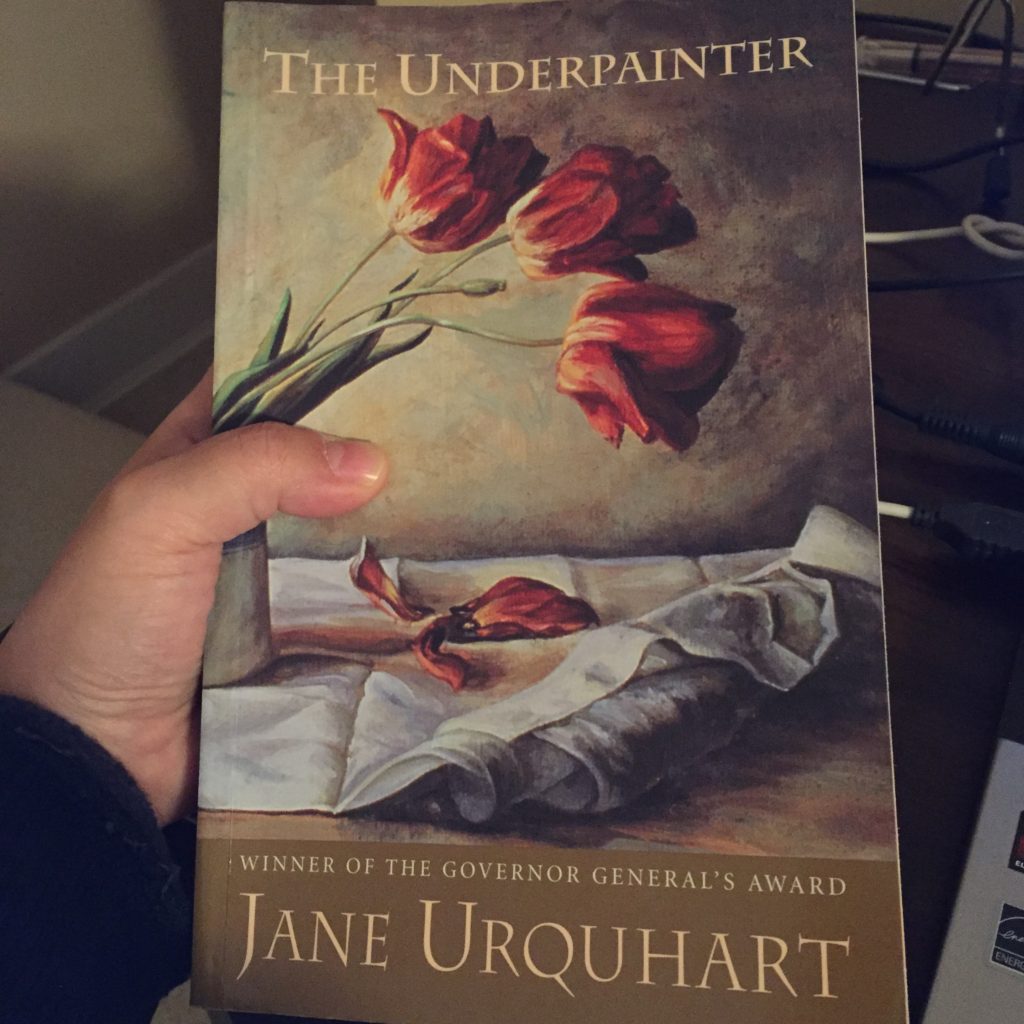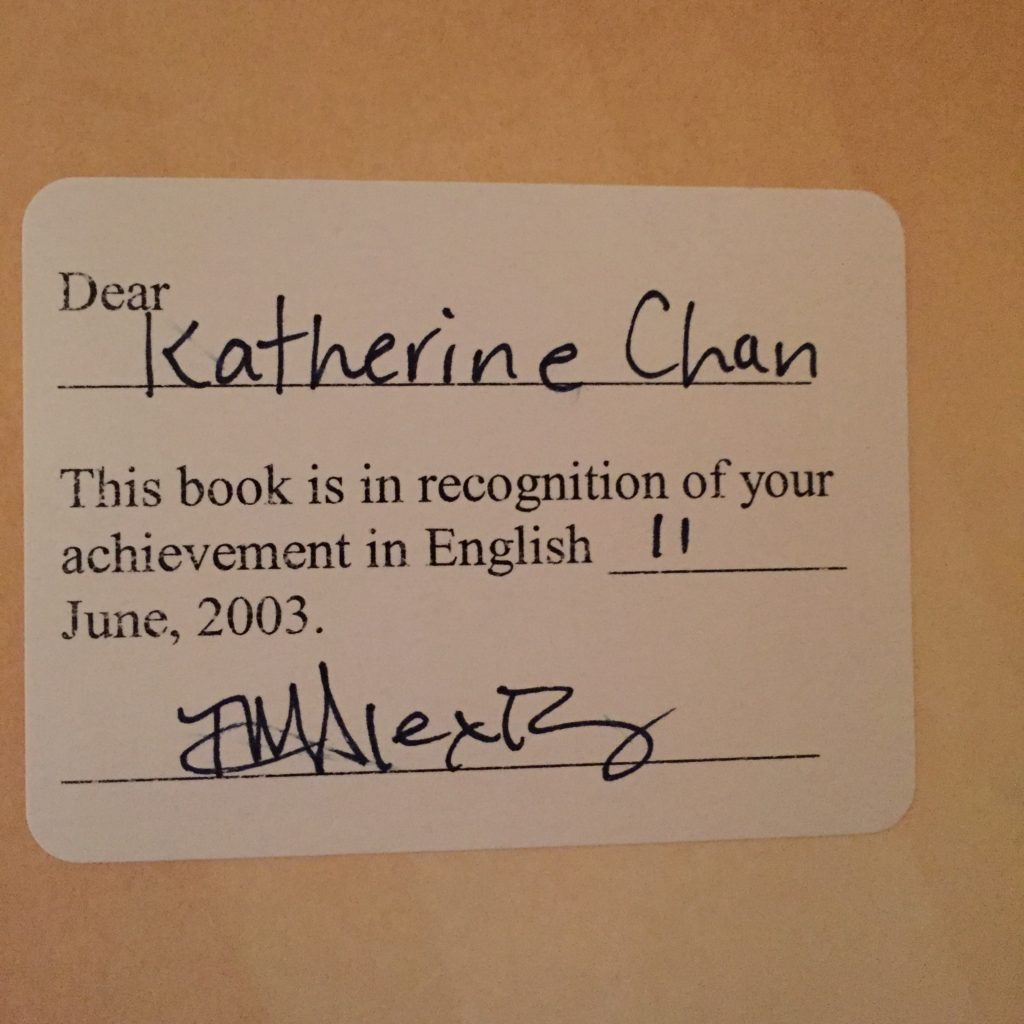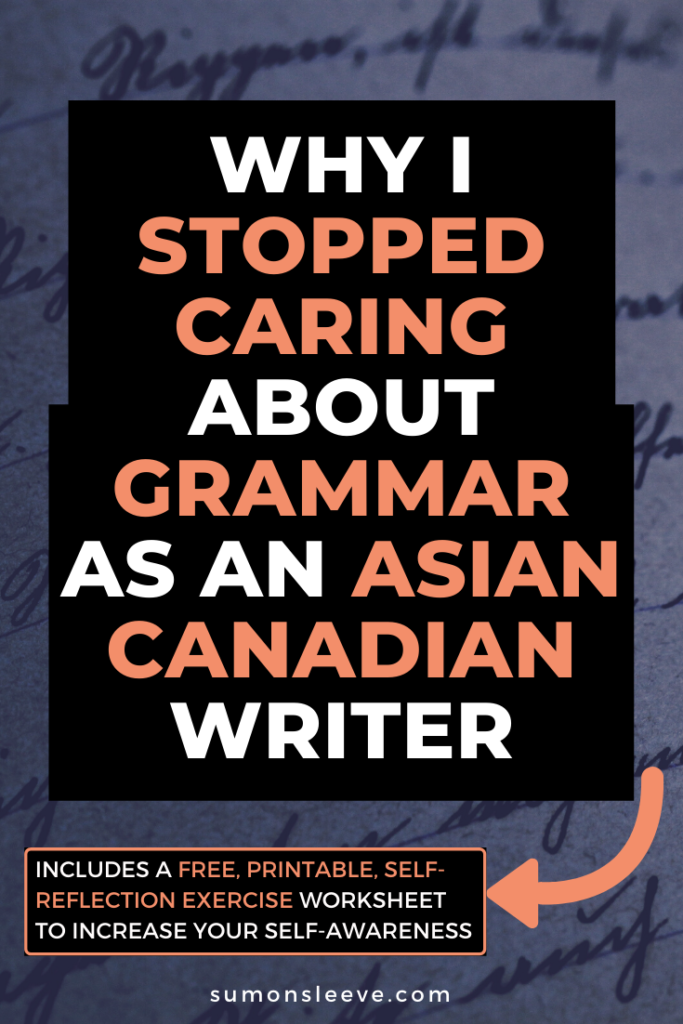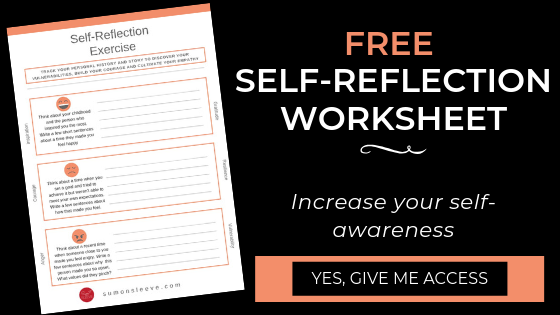Growing up as an Asian Canadian, I often felt I needed to prove my English skills worthy to the white folks.

“Your English is pretty good for a Chinese person.”
“Are you sure you don’t want to participate in the school’s ESL (English as a Second Language) program?”
“Do you need a translator?”
My pride in not needing ESL
I remember all throughout elementary school, I would watch each of my coloured friends enter the ESL program.
While I and the rest of my classmates were given time to work on math or some other assignment, the ESL teacher would come by, pick up 3 or 4 students and return them 45 minutes later.
Each year that I wasn’t picked made me feel like I was “better” than them as though my English skills were “far superior”.
Along with all the other ways I attempted to be white and to desperately fit in, not being an ESL kid meant I belonged. I didn’t want the attention of being pulled out of class. I wanted others to perceive me as someone who didn’t need the extra help, just one of the “normal” white kids.
By the time I finished high school, my confidence in English had skyrocketed. From teachers who consistently praised my writing to winning awards and poetry contests to top marks in English, my ego inflated.


Writing became my passion (it’s gotten me through many hard times) and validation for my talent fed my inherent perfectionist tendencies.
Those who are hard on others are hardest on themselves
The thing with grammar is that there are rules and when rules are broken, I fabricated these misconceptions associated with the person who broke the rule.
Their first language isn’t English.
They should take a basic English class.
They’re a recent immigrant.
They are incompetent. They need to be corrected in order to learn.
Deep down inside, I was scared to be perceived as such.
All throughout my undergrad and grad studies, I prided myself on following these rules. Using correct spelling, punctuation, and proper sentence structure in essays and assignments were essential to my academic performance.
I’d beat myself up whenever I made a grammatical error, not just for the lost marks but for the bruised ego.
Fuck you, MS Word 2003! Your Spelling and Grammar Check failed me yet again!
This peaked when I started working professionally for the government.
Straight out of grad school with a few published research articles under my belt and semesters of grading papers, I was highly critical of every piece of correspondence that was sent between myself and my coworkers.
My worst nightmare was emailing a report to an executive using “there” instead of “their.”
*Shudder*
They’ll see my last name “Chan” and make assumptions about my English skills.
It was an insecurity of mine that deeply influenced my view of how writing should be.
I’d criticize others who made mistakes:
Your wrong?
No, you’re wrong!
I’d cringe whenever someone used “then” instead of “than” and god forbid someone confused “loose” with “lose”. Ack!
I’d judge the person harsher if they were white, as though their ethnicity determined how well their English skills should be.
C’mon, you were born to speak the language at home! You’ve got a leg up already!
Let’s lighten up and let go
In the early 2010s, I got my first smartphone and hopped on the texting bandwagon.
Before that, I still had one of those flip phones.
Yes, I’m a laggard who also happens to be a Millennial.
As texting took over most of my communication, I had to text faster and with increasing volumes. There was less time to be grammatically correct. However, this was only with my friends and family, who knew that my texting errors didn’t truly reflect my writing ability.
Then, I entered the blogosphere in 2017 and set-up my public-facing social media channels, all of which required writing. There was just no point to spellcheck everything before pressing ‘send’ or ‘post.’
In the beginning, I would go back and correct myself.
Then, I realized that most people didn’t notice. They were onto the next thing. The fickle attention of the masses is fascinating. You can either ride each new wave or get caught in the undertow.
And for those who corrected me, I empathized with them. I didn’t beat myself up anymore because whatever conclusions they drew from that error didn’t change who I was as a writer. I was self-aware of who I am and what I stood for.
Ultimately, it was about overcoming my own assumptions and insecurities of being perceived a certain way as an Asian Canadian.
And of course, not caring about what others think.
The modern way to communicate
When it comes to communication, people from all walks of life (Native English speakers and non-native English speakers) have the opportunity to express themselves via the World Wide Web.
They can tweet, write a blog post, film themselves, self-publish an ebook, speak in podcasts, create meaningful content etc. There are endless ways to speak your mind, grammatically correct or not.
When I started blogging, my narrow view of what was right and wrong in the world of writing was completely blown apart.
Grammar should be respected but it doesn’t need to be enforced. It’s a guideline, not a law. Great writing doesn’t require perfect grammar.
And nowadays, we have online programs like Grammarly that help writers spot errors and typos.
Soon, will we all write like robots?
The story is what really matters
“I’ve learned that people will forget what you said, people will forget what you did, but people will never forget how you made them feel.”
Maya Angelou
Storytelling is an incredibly coveted skill. To deliver a powerful story with impact, leading the audience through the emotional ups and downs of a character’s experience requires a special talent.
No matter how technically accurate a writer is, their inner storyteller is what gets readers interested. It’s about their style, authentically displaying the essence of who they are, how they convey their message to the world and how they use words to intentionally evoke a specific feeling in the reader.
To me, writing is more art than science.
Unless the error affects the meaning of the story…
“Let’s go eat, grandma.”
Versus
“Let’s go eat grandma.”
Let’s provide some compassion to writers, create a more forgiving community and focus on the broader impression of someone’s work instead of getting caught in the minutia.
So Readers, where do you stand when it comes to grammar? Do you make assumptions about the writer when you see an error?





